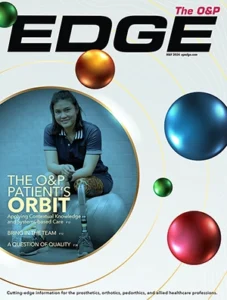
The American Orthotic & Prosthetic Association (AOPA) has submitted a response to Marilyn Tavenner, the newly confirmed administrator of the Centers for Medicare & Medicaid Services (CMS), regarding the proposed template to assist with lower-limb prosthesis documentation.
Among the key points made by AOPA Executive Director Thomas F. Fise, JD, are the following:
- The template CMS has published, even if a “work in progress,” is incompatible with the Tavenner’s promise that it would be capable of being completed by the prosthetist and is of such great specificity that very few, if any, physicians would provide such extensive detail.
- CMS doesn’t understand that durable medical equipment (DME) is very different from O&P, and that medical necessity for prosthetic limbs is very different from power mobility equipment (PME). So trying to apply solutions to the over-utilization of PME to the different and unrelated world of prosthetic limbs is wrong, and the attempted “one size fits all” solution is destined to fail.
- A recent letter was sent to Tavenner’s colleague George Mills, director of the CMS Provider Compliance Group, in which AOPA underscored the course CMS contractors are following in using physician records to try to rebut, overturn, and invalidate from afar and without ever having examined, or having had any other contact with the patient, the professional decision and prognosis of that patient’s physician. Mills’ response largely ignored this problem.
AOPA concluded its response with a general statement that neither the proposed document nor “the warmed over” PME pre-authorization concept does anything to advance a solution to the current RAC audit situation.




